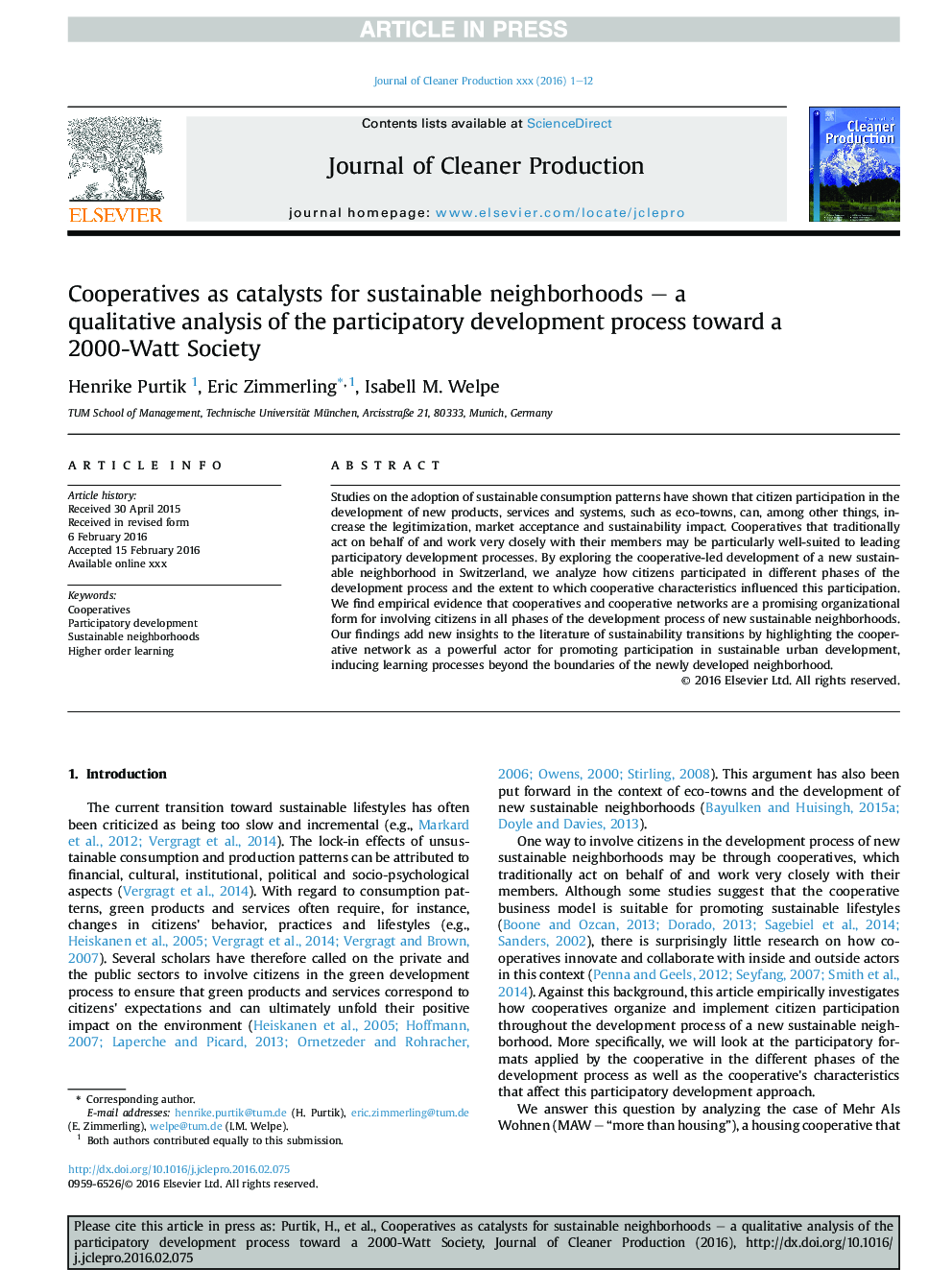| Article ID | Journal | Published Year | Pages | File Type |
|---|---|---|---|---|
| 10687777 | Journal of Cleaner Production | 2016 | 12 Pages |
Abstract
Studies on the adoption of sustainable consumption patterns have shown that citizen participation in the development of new products, services and systems, such as eco-towns, can, among other things, increase the legitimization, market acceptance and sustainability impact. Cooperatives that traditionally act on behalf of and work very closely with their members may be particularly well-suited to leading participatory development processes. By exploring the cooperative-led development of a new sustainable neighborhood in Switzerland, we analyze how citizens participated in different phases of the development process and the extent to which cooperative characteristics influenced this participation. We find empirical evidence that cooperatives and cooperative networks are a promising organizational form for involving citizens in all phases of the development process of new sustainable neighborhoods. Our findings add new insights to the literature of sustainability transitions by highlighting the cooperative network as a powerful actor for promoting participation in sustainable urban development, inducing learning processes beyond the boundaries of the newly developed neighborhood.
Related Topics
Physical Sciences and Engineering
Energy
Renewable Energy, Sustainability and the Environment
Authors
Henrike Purtik, Eric Zimmerling, Isabell M. Welpe,
